Becoming a Registered Nurse (RN) in the United States is a rewarding career path with high demand, competitive salaries, and numerous opportunities. RNs play an essential role in healthcare, providing direct patient care and educating patients about their health.
This comprehensive guide will walk you through how to become a registered nurse – from understanding what RNs do, the education and licensing steps (including the NCLEX exam), timelines and costs, to salary expectations and job outlook. We’ll also cover nursing career paths (like different RN roles and work settings), the benefits of this career, and a special section for a foreign nurse in the USA – explaining how internationally educated nurses can become licensed RNs in the U.S.
What is a Registered Nurse (RN)?
A registered nurse (RN) is a licensed healthcare professional with at least an associate degree or a baccalaureate degree who provides and coordinates patient care, working alongside physicians and other healthcare team members. Registered Nurses have earned a degree through an accredited nursing school and have successfully passed the NCLEX-RN. Registered nurses are employed in many different settings ranging from acute emergency care, operating rooms, private clinics, or community health services. RNs monitor patients’ conditions, administer medications and treatments, and educate patients and their families about health conditions and post-treatment care. They perform a wide range of duties such as:
- Assessing patients. RNs observe and evaluate patients’ health status, recording medical histories and symptoms.
- Administering care. They give medications, start IV lines, perform wound care, and assist with diagnostic tests and procedures.
- Care planning. RNs develop or contribute to care plans, and adjust treatments based on patient responses.
- Patient education. A key role of RNs is teaching patients how to manage illnesses or injuries and advising on healthy practices and follow-up care.

In essence, RNs are patient advocates and caregivers, ensuring patients receive appropriate care and understand their health conditions. They also provide emotional support to patients and families during challenging times.
Additionally, nurses are respected professionals and members of the healthcare team. In fact, nurses are consistently voted as the most trusted and ethical profession every year in the annual Gallup Poll.
Where do Nurses Work?
Registered Nurses work in diverse settings and roles across the healthcare continuum. In fact, about 58% of RNs are employed in hospitals, but RNs also practice in many other environments. Your work setting often influences your daily duties and the patient population you serve. Here are some common RN roles and work environments:
| RN Role / Setting | Key Responsibilities & Work Environment |
|---|---|
| Hospital Staff Nurse | Cares for acutely ill or post‑surgery patients in medical‑surgical units, ER, ICU, maternity, and other hospital departments. Works 24/7 rotating shifts, including nights and weekends. |
| Clinic or Physician’s Office Nurse | Assists with routine procedures, vaccinations, patient education, and follow‑up care in an outpatient setting. Generally keeps weekday, daytime hours. |
| Community / Public Health Nurse | Delivers preventive care, health education, and screenings in community clinics, public health departments, or schools—e.g., immunization drives, disease‑prevention programs. |
| Long‑Term Care / Nursing Home Nurse | Manages care plans and supervises LPNs / aides for elderly or chronically ill residents in nursing homes or assisted‑living facilities; monitors ongoing conditions. |
| Home Health Nurse | Travels to patients’ homes to provide post‑surgery care, chronic disease management, or hospice support. Works independently and coordinates remotely with physicians. |
| School Nurse | Handles student health concerns, administers medications, conducts screenings, and promotes wellness within the school environment, following the academic calendar. |
| Travel Nurse | Accepts short‑term (8–13 week) contracts at hospitals or clinics nationwide to fill staffing gaps. Offers higher pay and location variety; requires quick adaptability. |
| Other Specializations | Roles such as Critical Care, Pediatrics, Oncology, Labor & Delivery, Emergency, Case Management, Research, Consulting, or Health Informatics. Duties vary by specialty but all require an active RN license. |
There are many nursing career paths within the scope of nursing. Whether you prefer the fast pace of a hospital ICU or the autonomy of home health, you can find a role and environment that fits your interests. Many RNs also advance into higher positions (like nurse manager, educator, nurse practitioner, advanced practice registered nurse) with experience and further education, offering a variety of long-term career options. In the next section, we’ll explore the educational paths to become an RN.
How To Become a Registered Nurse (RN)?
To become a registered nurse in the U.S., you must complete an approved nursing education program. There are multiple educational paths that lead to eligibility for the RN license:
Associate Degree in Nursing (ADN)
An ADN is a two-year degree usually offered at community colleges. It focuses on the technical skills of nursing and clinical practice. ADN programs are often the quickest route to become an RN, and graduates are eligible to take the NCLEX-RN licensing exam. Many RNs start with an ADN and later complete a bachelor’s through an RN-to-BSN bridge program.
Bachelor of Science in Nursing (BSN)
A BSN is a four-year undergraduate degree from a college or university. BSN programs include more in-depth study of nursing theory, leadership, community health, and sciences. While an ADN and BSN both qualify you for entry-level RN jobs, many hospitals prefer or require a BSN for new hires. BSN-prepared nurses may also have better long-term career prospects in management or specialized roles.
Nursing Diploma
A diploma is an old-style nursing program, typically hospital-based, that usually takes about 2-3 years. Diploma programs still exist in some areas (often affiliated with hospitals) and also qualify graduates for the NCLEX-RN. However, diplomas have become far less common, with most students choosing college degrees today.
| Path | Length | Where | Focus | Best For | Outcome & Next Steps |
|---|---|---|---|---|---|
| Associate Degree in Nursing (ADN) | ~2 years | Community colleges, some universities | Technical nursing skills, hands‑on clinical rotations; quickest route to RN. | Students seeking the fastest, budget‑friendly entry into nursing. | Eligible for NCLEX‑RN and entry‑level staff nurse roles; bridge to BSN later via RN‑to‑BSN. |
| Bachelor of Science in Nursing (BSN) | ~4 years | Colleges & universities | Broader coursework—leadership, community/public health, research, sciences; extensive clinicals. | Those aiming for hospital jobs that prefer/require BSN or long‑term growth into management or specialties. | NCLEX‑RN eligibility; preferred for magnet hospitals, leadership tracks, and graduate study. |
| Hospital‑Based Nursing Diploma | 2 to 3 years | Hospital diploma schools (limited availability) | Intensive bedside training within the hospital setting; highly clinical. | Learners who want a strongly clinical program and have a diploma school nearby. | Eligible for NCLEX‑RN; graduates often bridge to ADN/BSN for academic credit later. |
| Accelerated BSN (ABSN) | 12 to 18 months | Universities with second‑degree tracks | Condensed BSN curriculum for non‑nursing bachelor’s holders; full‑time, fast‑paced. | Career changers seeking a bachelor‑level RN credential quickly. | NCLEX‑RN eligibility; same job prospects as traditional BSN grads. |
| Direct‑Entry or Entry‑Level MSN | 2 to 3 years | Universities with graduate nursing schools | Combines foundational RN coursework with master’s‑level content (e.g., Clinical Nurse Leader); rigorous. | Non‑nursing graduates who want an advanced degree and RN license in one program. | NCLEX‑RN eligibility plus an MSN; positions graduates for leadership or future APRN study. |
Direct-Entry MSN (Master’s in Nursing)
This is an accelerated graduate program for individuals who already have a non-nursing bachelor’s degree in another field. Direct-entry MSN programs (sometimes called entry-level masters) typically take 2 to 3 years and allow students to earn an RN license and a master’s degree concurrently. These programs are intensive but appeal to those changing careers into nursing at an advanced level. Graduates still must pass the NCLEX-RN to become licensed RNs, and they often receive a general MSN (for example, as a Clinical Nurse Leader).
Accelerated BSN
Similar to direct-entry MSN, an accelerated BSN (ABSN) is for those who hold a bachelor’s in another discipline. It condenses the nursing bachelor’s curriculum into about 12-18 months of full-time study. It’s another fast-track option to become an RN if you are switching careers.
No matter which path you choose, ensure the program is approved by the state board of nursing and accredited (accreditation by ACEN or CCNE is common for quality programs). All these paths qualify you to sit for the NCLEX-RN exam upon graduation, which is the next step to licensure.
Many nurses later pursue higher degrees (MSN or Doctor of Nursing Practice) to become advanced practice nurses or move into leadership, but your initial RN preparation will be one of the above routes. If you start with an ADN or diploma, you can always upgrade to a BSN later via bridge programs, often while working as an RN (and sometimes with tuition reimbursement from employers).
Licensing and the NCLEX-RN
After completing your nursing education, the next major step is to obtain your license to practice nursing. Licensing of Registered Nurse is managed at the state level by each state’s Board of Nursing, but all states have some common requirements such as:
- Graduate from an Approved Program. You must have proof of completion of an accredited nursing program (ADN, BSN, etc.).
- Apply for Licensure/Authorization to Test. You’ll apply to your state Board of Nursing for licensure. This usually involves a fee and a background check. The board will verify your education and then grant you an Authorization to Test (ATT) for the NCLEX.
- Pass the NCLEX-RN Exam. The NCLEX-RN (National Council Licensure Examination for Registered Nurses) is the mandatory licensing exam for RNs. It’s a computerized adaptive test that evaluates your nursing knowledge and ability to make safe clinical judgments. The NCLEX covers areas like safe care environments, health promotion, psychosocial integrity, and physiological integrity. You’ll face various question formats (multiple-choice, select-all-that-apply, fill-in-the-blank, etc.). Studying with NCLEX review courses or practice questions is common to prepare. Once you pass the NCLEX-RN, you’re eligible for licensure. You can learn more about the NCLEX-RN here.
- Obtain State License. If you pass the NCLEX, you’ll be issued an RN license by your state. At this point you can legally use the title Registered Nurse and practice in that state. If you don’t pass, don’t panic – you can retake the NCLEX, though you’ll need to wait at least 45 days and re-register. Make sure to check your state’s rules on NCLEX retakes.
- Consider the Nurse Licensure Compact (NLC). If you live in one of the 39 states that participate in the NLC, receiving your license in that state gives you a multi-state license. This allows you to practice in other compact states without obtaining separate licenses, which is very useful for travel nursing or if you move states. If your state isn’t in the compact, you’ll need to endorse your license to work elsewhere, which involves some paperwork but not re-testing.
How Long Does it Take to Become an RN?
The time it takes to become a registered nurse can vary widely depending on the educational path you choose and whether you study full-time or part-time. Here’s a breakdown of approximate timelines:
| Educational Pathway | In‑Program Duration (full‑time) | Fast‑Track/ Prerequisite Factors | Estimated Total Time to RN License* |
|---|---|---|---|
| Associate Degree in Nursing (ADN) | ≈ 2 yrs | Extra term if you need science prerequisites (add ≈ 0.5–1 yr) | ≈ 2.5–3 yrs |
| Traditional BSN | ≈ 4 yrs | Prior college credits can shorten by 0.5–1 yr | ≈ 4–5 yrs |
| Accelerated BSN (2nd‑Degree) | 12–18 mos | Requires a non‑nursing bachelor’s before entry | ≈ 1.5–2 yrs |
| Direct‑Entry MSN | 24–36 mos (year‑round) | Accepts a non‑nursing bachelor’s; grants MSN + RN | ≈ 2.5–3.5 yrs |
| LPN/LVN‑to‑RN Bridge | 12–24 mos | Builds on LPN coursework, often partly online | ≈ 1.5–2.5 yrs |
After graduation, factor in a bit of extra time for NCLEX prep and licensing. Many new graduates spend a few weeks to a couple of months reviewing for the NCLEX-RN. Once you pass the exam (and background checks are completed), state boards usually issue the RN license within a few weeks.

In summary, if you go the quickest route (ADN), you might become an RN in about 2.5 years (including NCLEX prep). A traditional BSN path will be around 4 to 5 years including licensure. If you’re switching careers via direct-entry MSN, expect about 2-3 years of schooling. Part-time students will take longer in any program. It’s a significant time investment, but considering the rewarding career that follows, many find it well worth the effort.
Costs of Nursing School and Financial Aid Options
How much does nursing school cost? Nursing school can be expensive, but costs vary by program type and school. It’s important to plan for tuition, fees, and other expenses, and to explore financial aid. Here’s an overview of what to expect:
| Program Type | Typical Program Length | Estimated Total Cost (inc. living) | Cost Notes |
|---|---|---|---|
| ADN | 2 yrs | ≈ $15 k – $30 k | Community‑college tuition; lowest overall price—especially in‑state. |
| BSN | 4 yrs | ≈ $90 k – $210 k | Big spread: public universities on the lower end, private schools on the high end. |
| Direct‑Entry MSN | 2–3 yrs | ≈ $60 k – $100 k | Graduate‑level tuition, but shorter duration cuts living expenses vs. four‑year BSN. |
Associate Degree in Nursing (ADN) Program Costs
Associate degree programs (often at community colleges) tend to be the most affordable route. Tuition for the full two-year program can be as low as about $6,000 at in-district community colleges and rarely exceeds $25,000—even when students enroll out of district or at higher-priced public schools.
Nationally, National Center for Education Statistics (NCES) data peg average in-district tuition at roughly $3,600 a year (about $7,200 for the full program), while the combined “cost of attendance”-–tuition, fees, housing, and meals—runs about $12,300 per year, or $24,600 for two years. Private options raise the bar: nonprofit colleges average around $20,000 in annual tuition (≈ $40,000 total), and for-profit institutions about $16,000 (≈ $33,000 total) before living costs.
| Sector | Annual tuition & fees | Annual total COA | Full 2-year tuition | Full 2-year COA |
|---|---|---|---|---|
| All institutions | $ 3,885 | $ 12,300 | $ 7,770 | $ 24,600 |
| Public (in-district) | $ 3,598 | $ 11,953 | $ 7,196 | $ 23,906 |
| Private non-profit | $ 20,019 | $ 33,162 | $ 40,038 | $ 66,324 |
| Private for-profit | $ 16,444 | $ 24,948 | $ 32,888 | $ 49,896 |
On the ground those differences are easy to see, for example, Santa Monica College in California expects just $4,000–$5,000 for the whole degree, Miami Dade College in Florida lists a little over $8,000, and Northern Virginia Community College hovers near $15,000 once textbooks are included. By contrast, West Coast University’s Miami campus—one of the largest for-profit providers—posts almost $49,000 for its 67-credit ADN.
In short, students who can attend their local community college pay the deepest discount (often under $10,000 for the entire credential), while those who choose private or for-profit schools should budget anywhere from the low-$30,000s to the high-$40,000s before room and board.
Bachelor of Science in Nursing (BSN) Program Costs
A Bachelor of Science in Nursing (BSN) carries a much steeper sticker price than an associate degree because it spans four academic years and usually requires 120-130 credits. National data from NCES show that, on average, students at public colleges face a total cost of attendance—including room and board—of about $22,000 per year (≈ $90,000 for four years), whereas private nonprofit colleges average $50,000 or more, annually (≈ $200,000 overall).
| Sector | Annual tuition & fees | Annual total COA | Full 4-year tuition | Full 4-year COA |
|---|---|---|---|---|
| All institutions | $ 17,709 | $ 30,884 | $ 70,836 | $ 123,536 |
| Public (in-district) | 9,750 | 22,389 | 39,000 | 89,556 |
| Private non-profit | 38,421 | 52,848 | 153,684 | 211,392 |
| Private for-profit | 15,868 | 27,767 | 63,472 | 111,068 |
Private for-profit schools, which charge by the credit, typically land in the $90,000 to $125,000 range for the full degree. For in-state students at public universities, tuition alone generally falls between $25,000 and $40,000 for the entire program—think roughly $25,500 at the University of Florida or about $38,500 at the University of Texas at Austin. Private institutions push the ceiling even higher: accelerated tracks such as Duke University’s three-semester Accelerated BSN cost around $79,000, while a traditional four-year BSN at the University of Pennsylvania exceeds $240,000 in tuition.
Costs drop sharply if you commute from home, choose a lower-priced regional campus, or begin with an inexpensive community-college ADN and complete an RN-to-BSN bridge later.
Direct-Entry Master of Science in Nursing (MSN) Costs
Direct-entry Master of Science in Nursing (MSN) programs—intended for college graduates in another discipline—typically last five to six semesters (about two to three academic years) and usually cost more than a four-year BSN. Public universities (where available) usually costs around $30,000 to $60,000 in tuition for direct-entry master’s track.
Private for-profit programs often fall between $90,000 and $130,000, driven by per-credit rates of $1,300–$1,800. Actual price tags climb much higher: Johns Hopkins budgets roughly $82,000 in tuition for its five-semester “Entry Into Nursing” MSN, the University of Rochester lists about $115,000.
Despite the steep per-credit charge, the shorter calendar compared with a four-year BSN keeps total living expenses in check, and a handful of public universities still deliver direct-entry options in the $30,000–$60,000 range. Institutional grants and employer tuition assistance can shrink these costs.
Other Expenses
Remember to budget for textbooks, nursing lab fees, uniforms/scrubs, equipment (like a stethoscope), transportation to clinical sites, living cost, and exam fees (NCLEX exam fee is about $200, plus state license fees ~$100). If you need to take prerequisite courses or preparatory classes, those add to the cost.
Financial Aid and Scholarships
The good news is there are many financial aid options for nursing students:
- Federal Student Aid. By filling out the FAFSA, you can access federal grants (like the Pell Grant, if you qualify based on income) and student loans. Subsidized loans have interest benefits, and there are also unsubsidized loans available.
- Scholarships. Hundreds of scholarships are available specifically for nursing students. These may be offered by nursing organizations, hospitals, nonprofits, or the schools themselves. For example, the American Association of Colleges of Nursing (AACN) and state nursing associations often list scholarship opportunities. Even small awards can help with books or fees, so apply to as many as possible.
- Nurse Corps Scholarship Program. This is a federally funded program that pays tuition and a stipend for students who commit to work after graduation in a critical shortage facility (such as an underserved area). It’s competitive but covers substantial costs.
- Loan Forgiveness and Repayment Programs. RNs may qualify for programs like Public Service Loan Forgiveness (working for 10 years in non-profit or government healthcare) or the Nurse Corps Loan Repayment (which pays off a portion of loans for RNs working in high-need areas). If you take loans, these programs can alleviate debt after you become an RN.
- Employer Tuition Assistance. Some healthcare employers offer tuition reimbursement or sponsorships. For instance, if you work as a nursing assistant or LPN at a hospital, they might pay for part of your RN schooling in exchange for a work commitment. Or, after becoming an RN, some employers will pay for you to get your BSN or MSN.
- Work-Study or Part-Time Work. Many students work part-time during nursing school to offset costs. Some find jobs as patient care techs or aides, which not only bring income but also experience in healthcare.
Always research and plan your financing early. Talk to the financial aid office at your school – they can help identify relevant scholarships or grants. Nursing is an investment in your future, and with smart financial planning, you can minimize debt. Next, we’ll explore whether the investment in nursing school is worth it when you consider a nurse’s earning power and other perks—spoiler: it is.
How Much Do Registered Nurses Make?
One of the attractive aspects of nursing is the competitive salary and the ability to earn more with experience or specialization. However, RN salaries can vary significantly based on geographic location, workplace setting, and experience level.
National Average Salary
As of the latest data, the median annual salary for registered nurses in the U.S. is about $93,600 (which means half of RNs earn less and half earn more). The average (mean) RN salary is slightly different – around $89,000 – $95,000, depending on the source and year. Entry-level RNs (new graduates) will usually start below the median, while very experienced RNs or those in high-paying locales will earn above. To give a sense of range, the lowest 10% of RNs earn around $66,000, whereas the top 10% can earn over $135,000 per year. Factors like advanced certifications, overtime, and shift differentials (extra pay for nights/weekends) can also boost earnings. See our posts below for the latest nurse salary data:
MUST READ: Nurse Salary: Comprehensive Guide on How Much Do Registered Nurses Make?
Nurse Salary Per State
Location has a big impact on RN pay. Generally, states on the West Coast and in the Northeast tend to pay higher salaries than those in the South or Midwest, often reflecting cost of living differences. For example, California is the highest-paying state for RNs, with an average RN salary around $124,000 per year. Other top-paying areas include Hawaii (around $106K), Oregon ($98K), Washington D.C. ($98K), Alaska ($97K), Massachusetts ($96K). On the other end, states like South Dakota, Alabama, Mississippi and others have average RN salaries in the range of $60K to $80K. For instance, South Dakota’s average is about $60,540, which is roughly $63K lower than California’s average RN pay. Keep in mind that a lower salary in one state might still go further than a higher salary in another, due to cost of living differences (housing, taxes, etc.).
Salary by Work Setting
The industry or facility type you work in also influences earnings. According to the Bureau of Labor Statistics, median RN salaries by work setting are:
| Employment Setting | Median RN Salary | Brief Insight |
|---|---|---|
| Government (VA hospitals, public‑health departments, military facilities) | ≈ $106,480 | Highest pay on average; strong benefits and pensions. |
| Hospitals (state, local, private) | ≈ $97,260 | Solid wages—especially in specialized or critical‑care units. |
| Ambulatory Healthcare Services (clinics, physician offices, outpatient centers) | ≈ $83,780 | Lower than hospitals; predictable daytime schedules (fewer shift differentials). |
| Nursing & Residential Care Facilities (long‑term care, nursing homes) | ≈ $81,820 | Slightly lower pay than acute‑care hospitals; high demand for geriatric expertise. |
| Education Services (school nurses, college nurse educators) | ≈ $74,360 | Lowest median; academic calendars and daytime hours trade off with salary. |
Additionally, travel nurses can earn substantially more on a weekly basis than staff nurses, because agencies often pay a premium (and provide housing stipends) to fill short-term needs. It’s not unusual for travel nurses to make the equivalent of six-figure salaries, especially if willing to go to high-need areas.
Experience and Speciality
Naturally, as you gain experience, your earning potential rises. Many hospitals have clinical ladders or pay increases for years of service. Moreover, certain specialties may offer higher pay – for example, ICU, surgical, or labor & delivery nurses might have higher base rates than general floor nurses in some organizations. Charge nurses or shift supervisors (RNs with added responsibility) often get a stipend or higher wage. If you move into advanced practice roles (like Nurse Practitioner or Nurse Anesthetist), salaries increase dramatically, but those require additional degrees and licenses beyond the RN.
Overall, RN salary in the USA is quite healthy compared to the national average of all occupations. When evaluating job offers, consider the whole package: benefits, location, cost of living, and opportunities for overtime or advancement. Nurses often have the chance to work extra shifts for extra pay, and many employers offer differential pay for evenings, nights, or specialty certifications. Up next, we’ll examine the projected demand for nurses and the key perks that make the profession so appealing.
Job Outlook and Demand
Choosing to become an RN not only offers financial rewards, but also long-term job security and career growth.
Nursing is a field with steady demand. The U.S. Bureau of Labor Statistics projects that employment of RNs will grow about 6% from 2023 to 2033, which is faster than the average for all occupations. By the numbers, this means an increase of roughly 197,000 RN jobs over the decade. In addition, BLS estimates there will be about 194,500 job openings for RNs each year on average when accounting for turnover and retirements. The demand is driven by an aging population (more healthcare needs as Baby Boomers retire and live longer) and the fact that chronic conditions like diabetes and heart disease are prevalent, requiring nursing care. Nurses are needed across all settings – hospitals, outpatient centers, home health, and long-term care – and this demand was underscored during the COVID-19 pandemic and continues in its aftermath.
Benefits of Becoming an RN
Beyond the positive hiring outlook, there are many reasons that make nursing an attractive career:
Job Stability and Security
Healthcare is essential, and nurses are the backbone of patient care. RNs often have excellent job security; layoffs are less common in nursing compared to other industries. In fact, many areas face nursing shortages, meaning you might have your pick of job opportunities. An RN license is also a portable credential – you can often find work in any city or state, giving you geographic flexibility.
Competitive Salary and Benefits
As discussed, RNs earn a strong wage, and many positions come with robust benefits (health insurance, retirement plans, paid time off). There’s also potential for overtime pay and shift differentials to increase income. Many employers also offer perks like tuition reimbursement for further education, sign-on bonuses for high-need specialties, or relocation assistance.
Flexible Schedules
Nursing can offer flexible scheduling. Hospital RNs often work 3 days a week in 12-hour shifts (for a full 36-hour work week), which means four days off. This can allow you to pursue further education, family time, or even a side business on your days off. If 12-hour shifts aren’t for you, there are options like part-time, per diem (on-call), or 8-hour shift jobs in clinics. The variety of work settings also means you can find a schedule that suits your lifestyle (daytime, nights, weekends-only, etc.).
Variety and Upward Mobility
With an RN license, you can work in many different areas of practice, as we covered earlier. You might start in med-surg nursing, then transition to pediatrics or oncology, or move from a hospital to a home health role. There’s always something new to learn in nursing, and you won’t be stuck in one track if you want to change. Additionally, RNs have clear paths to advance their careers. With experience or additional certifications, you could become a charge nurse, nurse manager, or unit director.
If you pursue a post-graduate degree, you can become an Advanced Practice Registered Nurse (APRN) such as a Nurse Practitioner, Nurse Anesthetist, or Clinical Nurse Specialist, which come with greater responsibility and pay. RNs can also move into related fields like healthcare administration, teaching (nurse educator), or research. This upward mobility and career versatility is a big benefit.
Personal Fulfillment
Many nurses find great meaning in their work. As an RN, you make a tangible difference in people’s lives every day – helping to heal the sick, comfort families, and improve community health. Nursing is often described as more of a calling than a job. While it can be challenging and even stressful, the reward of seeing patients recover or knowing you provided compassionate care is a huge motivator. The skills you develop (communication, empathy, critical thinking) are not only professionally valuable but also enrich you personally.

Travel and Mobility
If you like change or travel, nursing can offer that too. RNs can become travel nurses and work short-term assignments around the country (with housing provided and travel stipends). There are also international nursing opportunities or humanitarian work if that interests you. Nursing skills are needed globally.
Most Trusted Professionals
Nurses consistently ranks as one of the most trusted professionals in Gallup polls, due to nurses’ ethics and honesty. RNs often develop strong bonds with patients, who rely on them for honest information and compassionate care. There is a sense of pride in belonging to a profession that is held in high esteem by the public.
Drawbacks of Being a Nurse
While there are many positives, it’s also fair to acknowledge nursing can be physically and emotionally demanding. Long hours on your feet, exposure to illnesses, and high-pressure situations are part of the job. However, strong support systems, self-care, and a passion for the work help many nurses thrive despite the challenges.
Long 12-hour shifts
Hospital schedules commonly stretch to twelve‑hour blocks, and those hours can flip from days to nights within the same month. Such marathon shifts interrupt sleep patterns and leave nurses finishing work in a fog of fatigue. Research ties this exhaustion to higher error rates on the floor and even car accidents on the commute home. Holidays, weekends, and overtime come with the territory as well, so family gatherings and social plans often take a back seat to the needs of the unit.
Constant Exposure to Blood, Body Fluids, and Infection
Nurses are on the front line of infection control, which inevitably means close contact with blood, body fluids, and contagious illnesses. Fortunately, rigorous safety standards, personal protective equipment, and vaccination policies dramatically reduce actual risk. Seasoned RNs will tell you that strict hand hygiene, thoughtful use of gloves and masks, and a no‑shortcuts mindset quickly become second nature.
Workplace Violence
Hospitals and clinics are seeing a troubling uptick in aggression from patients, visitors, and occasionally even colleagues. National labor data show health‑care workers experience violent incidents at rates far above most other industries. An unexpected shove or a shouted threat can be jarring in the moment; over time, repeated confrontations erode a nurse’s sense of safety and may contribute to anxiety, depression, or post‑traumatic stress.
Emotional Toll and Compassion Fatigue
Caring for the sick and injured means witnessing pain, grief, and loss on a near‑daily basis. While empathy is a nurse’s superpower, absorbing so much suffering can drain that reserve faster than it can be replenished. Burnout in nursing—marked by exhaustion, cynicism, and a fading sense of accomplishment—affects roughly one in three nurses. Compassion fatigue takes it a step further: the nurse continues to feel for patients but has little left to give, leading to a constant undercurrent of emotional numbness.
Physically Demands and Injury Risk
A bedside nurse may reposition or transfer patients dozens of times a day—often with limited help or awkward equipment. Repeated lifting, twisting, and bending take a toll on backs, shoulders, and knees, which is why health‑care staff consistently top the charts for work‑related musculoskeletal injuries. When a unit is busy, ergonomic guidelines can slip, and a single sudden movement is all it takes for a career‑altering strain.
Internationally Educated Nurses: How to Become an RN in the USA
If you are a internationally-educated nurse (often called a foreign nurse) aspiring to work as an RN in the United States, there are additional steps and requirements to be aware of. The U.S. does welcome foreign nurses, but you must ensure your credentials meet U.S. standards and navigate immigration regulations. The process for an internationally educated nurse to become a U.S. RN involves credential evaluation, meeting English requirements, passing the NCLEX-RN, and navigating the immigration (VisaScreen and visa application) steps (described below). It can be complex, but thousands of foreign nurses succeed each year. Organizations like CGFNS provide guidance, and some employers will assist you through the steps. Once you’ve cleared those hurdles, you can enjoy a nursing career in the U.S. with all the opportunities that come with it. Here’s an overview of the process for a foreign nurse in USA:
1. Education and Licensing in Home Country
First, you generally need to be a registered nurse in your home country with a completed nursing education. The U.S. will evaluate your foreign nursing education and license as part of the process. If you are not yet a fully qualified nurse in your country, it’s usually necessary to do that first.
2. Credential Evaluation with CGFNS
Most state boards of nursing require internationally educated nurses to have their credentials evaluated by an organization like CGFNS (Commission on Graduates of Foreign Nursing Schools). This means you will submit your nursing school transcripts, proof of license, and other documents to verify that your training is authentic and comparable to U.S. nursing education. CGFNS will provide a report to the state board.
In many cases, you’ll apply to a CGFNS Credentials Evaluation Service or their Certification Program. The CGFNS Certification Program includes a credentials review, an English language proficiency test, and a qualifying exam (a predictor exam for NCLEX).
Some state boards require the CGFNS Qualifying Exam before allowing you to sit for NCLEX, while others do not – it varies by state. Even if not required, passing the CGFNS exam can be a good practice step before NCLEX. Tip: Start the credential evaluation process early, as it can take several months to gather documents from schools and licensing authorities overseas.
3. English Language Proficiency
If you were educated in a non-English speaking country, you will likely need to pass an English proficiency exam (such as TOEFL or IELTS). The VisaScreen® process (explained below) and some state boards require proof of English ability. English exams ensure you can communicate effectively with patients and colleagues in the U.S.
4. Pass the NCLEX-RN Exam
Internationally educated nurses must also pass the NCLEX-RN to obtain a U.S. RN license – there are no exceptions to this. Once your credential evaluation is approved and any state-specific requirements are met (for example, some states might require the CGFNS certificate first), the state board will give you authorization to take the NCLEX-RN. You can take the NCLEX at test centers worldwide (the exam is offered in many countries).
Preparing for NCLEX is important, as it may differ from the exams you took for licensure in your country. Consider an NCLEX review course tailored for international nurses if available. After passing NCLEX, you’ll be eligible for a state RN license (you may need to travel to the U.S. to actually receive the license, depending on state rules, or they may issue it while you’re abroad).
5. Visa and Immigration Process
Besides getting licensed, you need the legal authorization to work in the United States. Immigration law in the U.S. typically classifies registered nursing as a job eligible for a special immigrant visa (Green Card) for shortage occupations, or sometimes an H-1B visa (though H-1Bs for nurses are less common unless for very specialized roles). The common route is:
- Find a U.S. employer willing to hire and sponsor you. This could be a hospital or a staffing/recruitment agency. They will file a petition for your work visa or green card. You usually need to have passed NCLEX and be eligible for a license to secure a job offer.
- Complete the VisaScreen® process: U.S. law requires foreign healthcare workers (including RNs) to obtain a VisaScreen certificate as part of immigration. VisaScreen is done by CGFNS or other approved agencies and is basically a comprehensive screening of your credentials, education, license, and English proficiency. If you’ve done the CGFNS Certification Program, that often covers VisaScreen requirements. Once you pass NCLEX and English exams and your credentials are verified, you get a VisaScreen certificate.
- The employer’s petition, along with your VisaScreen certificate, will be submitted for either a permanent resident visa (EB-3 category, typically) or occasionally an H-1B. For many nurses, the EB-3 “Schedule A” green card route is used, which is somewhat streamlined for nurses because they are pre-designated shortage occupations. This process can still take months to years depending on country of origin and visa bulletin backlogs, so patience is key.
- If you are from Canada or Mexico, a note: you may be eligible for a TN visa under NAFTA/USMCA for registered nurses, which is a simpler process (no caps, just a job offer and proof of license/credentials).
6. Arriving and Working
Once you secure your visa and U.S. RN license, you can move to the U.S. and begin work as a registered nurse for your sponsoring employer. Often, agencies will provide an orientation or transition program for international nurses to adjust to U.S. clinical practices. Make sure to also obtain a social security number upon arrival (your employer will guide you), as you’ll need that to get paid.
7. Adaptation
Nursing might differ in the U.S. compared to your home country (different technology, electronic health records, perhaps a different scope of practice). Take advantage of any training or mentorship your employer offers. Many international nurses thrive and even advance into higher roles over time.
Note that each state has its own specific requirements for internationally educated nurses. Some states might require the CGFNS Qualifying Exam, others might not; some might have specific coursework requirements (like maternal health or psychiatric nursing in your transcript). Always check the Board of Nursing website for the state where you plan to get licensed to see their instructions for foreign-trained nurses. You can usually find a section on “International Applicants” or “Foreign Educated Nurses” on their site.
If you’re an internationally educated nurse, know that with careful planning and perseverance, you too can join the U.S. nursing workforce by completing the necessary exams and visa process. The effort is significant, but so are the rewards.
LPN/LVN vs RN: Key Differences
You may also be wondering about the difference between a Licensed Practical Nurse (LPN) – called Licensed Vocational Nurse (LVN) in California and Texas – and a Registered Nurse (RN). Both are nursing roles, but there are significant differences in education, scope of practice, and career opportunities:
Education & Training
Becoming an LPN/LVN generally requires a shorter educational program. LPN programs are typically 12 to 18-month diploma or certificate programs offered at community colleges or vocational schools. In contrast, becoming an RN requires a higher level of education – at minimum an Associate’s Degree in Nursing (2 years) or more commonly a Bachelor’s Degree in Nursing (4 years). This extended education means RNs receive more in-depth training in nursing theory, physiology, pharmacology, and clinical practice. An LPN is trained for entry-level basic nursing care, while an RN is trained for a broader scope of practice and critical thinking.
Required Licensing Exams
After their program, LPNs must pass the NCLEX-PN (the licensing exam for practical nurses) to become licensed, whereas RNs take the NCLEX-RN. These exams differ in content reflecting the scope of each role. Both LPNs and RNs are required to be licensed in the state where they practice.
| Category | LPN / LVN | RN |
|---|---|---|
| Education & Training | • 12–18 mo. certificate/diploma (vocational school or community college). • Prepares for entry‑level, basic nursing care. | • Associate Degree in Nursing (2 yrs) or Bachelor of Science in Nursing (4 yrs). • Deeper study of theory, pharmacology, pathophysiology, critical thinking. |
| Licensing Exam | NCLEX‑PN (Practical Nurse). | NCLEX‑RN (Registered Nurse). |
| Scope of Practice | • Basic patient care under supervision (vital signs, ADLs, simple wound care, some meds). • Cannot initiate care plans or many IV therapies (varies by state). | • Full assessments, develop care plans, start/monitor IVs, administer blood products, complex interventions. • May supervise LPNs and unlicensed staff. |
| Typical Work Settings | • Long‑term care, rehab, outpatient clinics. • Limited roles in acute‑care hospitals. | • Hospitals (all units), public health, schools, specialty clinics, community health, advanced practice. |
| Median Salary (2024) | ≈ $60,790 / yr (range $48k–$55k typical). | ≈ $94,480 / yr (range $75k–$95k). |
| Advancement Paths | • Few without further education. • Can bridge to RN via LPN‑to‑ADN/BSN programs. | • Leadership (charge, manager), advanced practice (NP, CRNA, CNS), specialty roles (ICU, OR, peds), education, research. |
| Independence / Supervision | Must practice under RN or physician; cannot delegate to RNs. | Greater autonomy; can delegate to LPNs and aides; responsible for nursing diagnoses. |
Scope of Practice
RNs have a broader scope of practice and more autonomy than LPNs. LPNs provide basic nursing care under supervision. Typical LPN duties include checking vital signs, helping patients with daily activities (bathing, dressing), administering basic treatments or medications (often not IV medications, depending on state laws), wound care, and collecting patient data to report to an RN or doctor.
RNs, on the other hand, can perform all those tasks and more. RNs are responsible for initial patient assessments, developing nursing care plans, administering IV medications, blood products, and more complex interventions, and they collaborate directly with physicians on patient care. RNs can also supervise LPNs. In many states, certain procedures (like starting an IV line or creating a care plan) are only within an RN’s scope, not an LPN’s. Essentially, LPNs have a “technical” role in nursing care delivery, while RNs have a “professional” role that includes decision-making and patient education at a higher level.
Work Settings
LPNs and RNs may work in some of the same facilities (hospitals, nursing homes, clinics), but their roles differ. Many LPNs work in long-term care (nursing homes, rehabilitation centers) or outpatient clinics. In hospitals, RNs are more prevalent; some hospitals hire few LPNs or none at all, especially in acute care units, preferring RNs for their wider scope. School nursing, public health, and advanced specialties are generally RN-only areas. That said, LPNs are valued members of the healthcare team, particularly in chronic care settings, and are increasingly being used in team nursing models in hospitals too.
Salary
Because of the differences in education and responsibilities, RNs earn significantly higher salaries than LPNs. As noted earlier, RNs in the U.S. have a median salary in the $75K–$95K range (depending on the data year). LPNs have a median around $48K–$55K. For example, in 2024 the average annual salary for LPNs was about $60,790, versus $94,480 for RNs. This gap can vary by region, but generally RNs make roughly 1.5 to 2 times what LPNs make. This pay difference reflects the higher level of responsibility and skill required of RNs.
Advancement Opportunities
RNs have more avenues for career advancement. They can move into leadership roles (charge nurse, nurse manager), pursue advanced practice (becoming NPs, nurse anesthetists, etc.), or specialize in areas like ICU, surgery, pediatrics, etc. LPNs have more limited advancement unless they pursue further education to become RNs. Many LPNs choose to go back to school to get an ADN or BSN (there are LPN-to-RN bridge programs) in order to increase their scope and earning potential. Essentially, being an LPN can be a stepping stone to becoming an RN.
Level of Professional Autonomy
By law, LPNs often must work under the supervision of an RN or physician – they usually cannot practice independently. RNs, while they also collaborate with physicians, have the authority to make more independent nursing decisions, such as assessments and nursing diagnoses, and often delegate tasks to LPNs and nursing assistants. In leadership terms, an RN can supervise LPNs, but an LPN does not supervise RNs.
In summary, the RN vs LPN comparison comes down to level of education, breadth of practice, and responsibility. RNs require more schooling and take on more complex patient care tasks, which in turn yields higher salaries and more career opportunities. LPNs have a faster entry into nursing and perform essential bedside care, but with a narrower scope and under oversight. Both are important, but if you aim for the full professional scope of nursing practice (and the higher income and growth potential that come with it), becoming an RN is the way to go. Many nurses actually start out as LPNs to get into the workforce sooner, then study further to transition to an RN role after a few years.
Ready to Become A Registered Nurse?
Becoming a Registered Nurse in the USA is an exciting journey that requires dedication to education and training, but it opens the door to a fulfilling and stable career. You’ve learned about what RNs do, the various paths to enter the profession, the importance of the NCLEX exam and licensing, and practical considerations like time, cost, and salary. Nursing offers not just a job, but a profession with lifelong learning, the ability to touch lives, and a wide range of possibilities – from working beside surgeons in a hospital to educating communities as a public health nurse, or even traveling the country on short-term assignments.
Now that you have this comprehensive roadmap on how to become a registered nurse, you can take the next steps with confidence. Whether you’re just starting to explore nursing or you’re ready to enroll in a program, remember that every expert nurse was once a beginner. With study, experience, and compassion, you will be well on your way to a successful nursing career in the United States.
References and Sources
- Bureau of Labor Statistics – Registered Nurses, Occupational Outlook Handbook (median pay, job outlook, and work environment) (bls.gov)
- CGFNS International – How to Work as a Nurse in the U.S. (steps for foreign-educated nurses, credential evaluation, and VisaScreen) (cgfns.org)
- U.S. Department of Education, NCES Digest Table 330.10, December 2023 release. (nces.ed.gov)
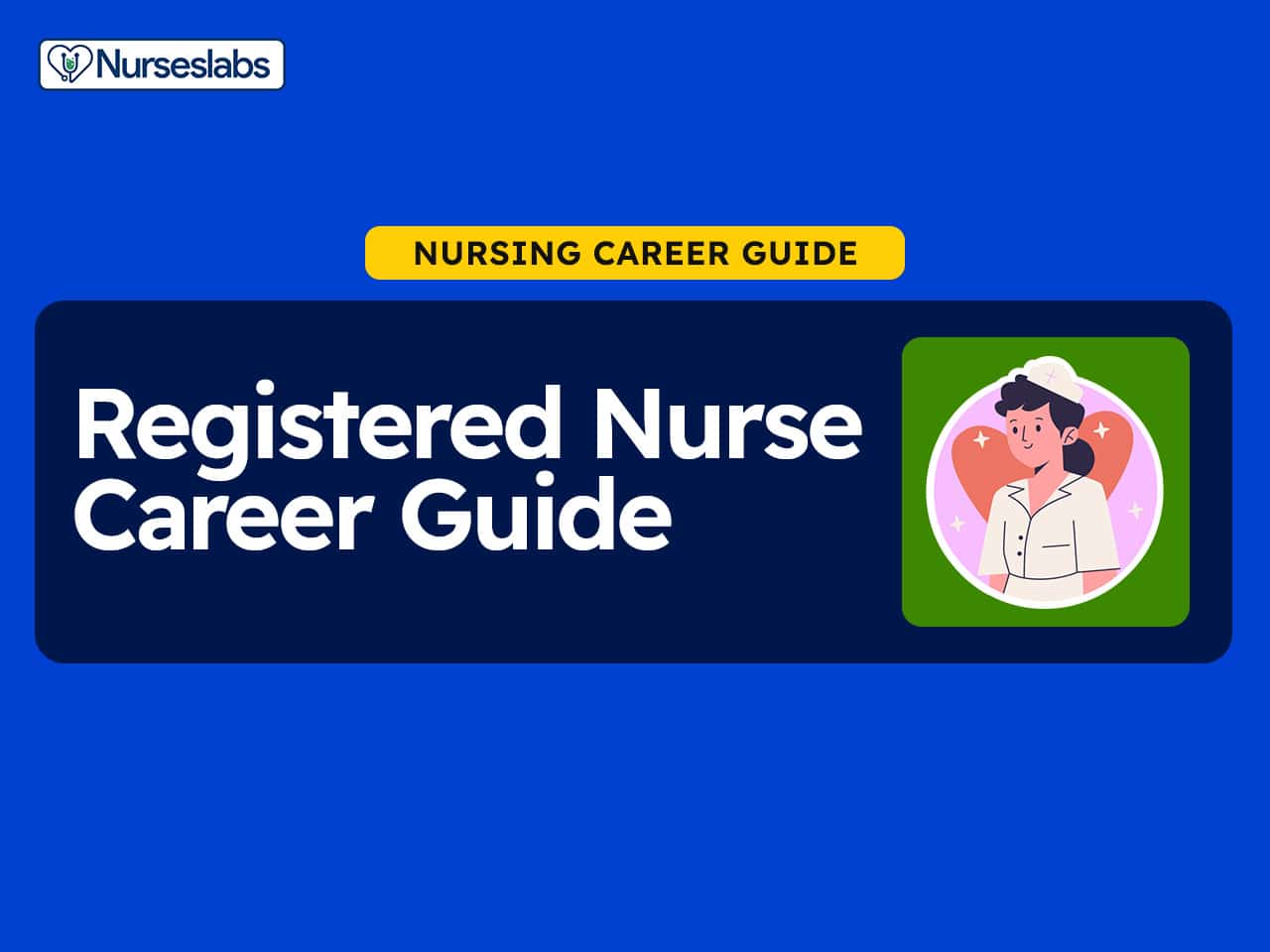

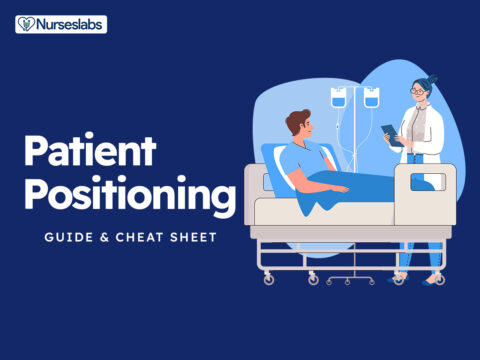

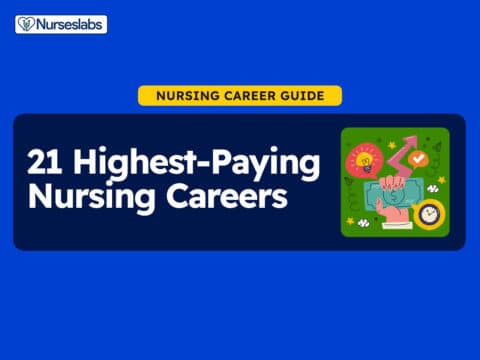
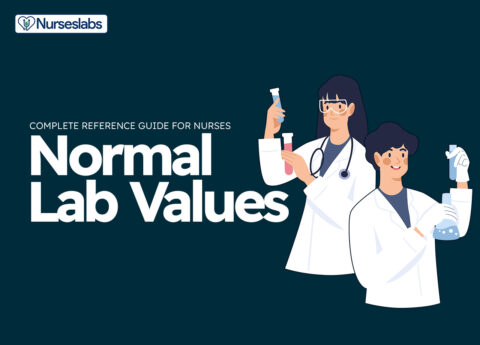
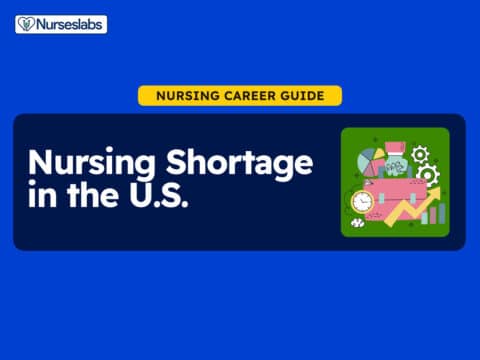
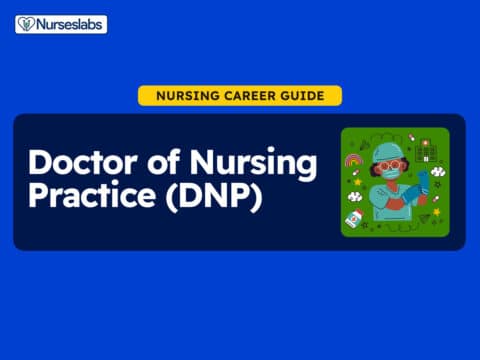
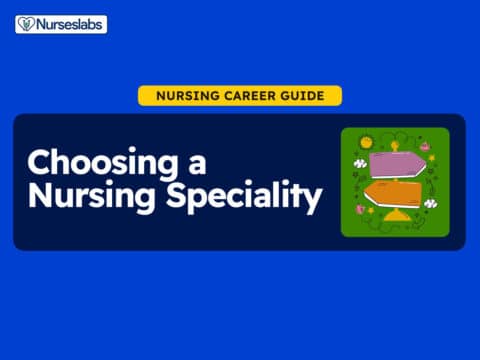
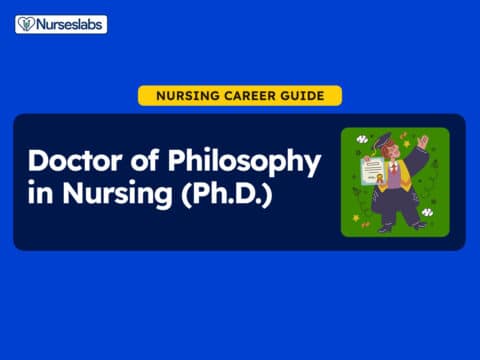
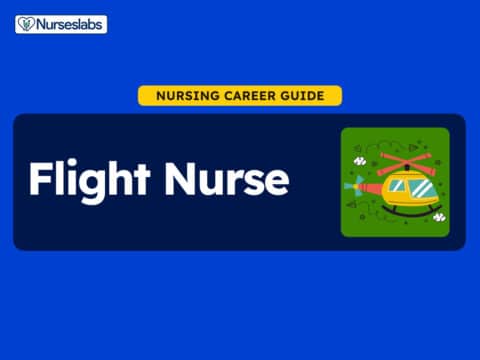
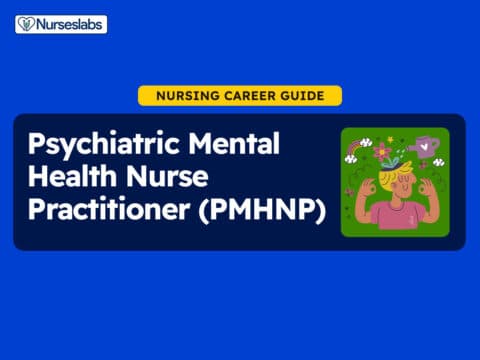
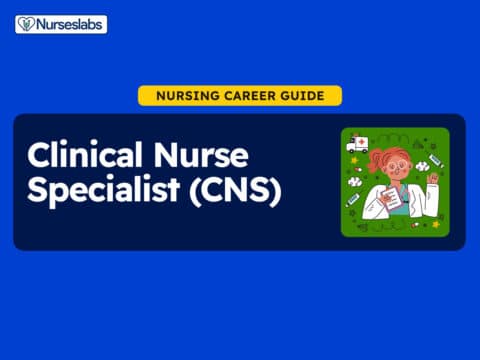
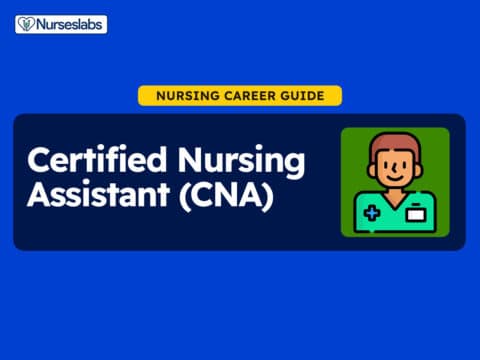
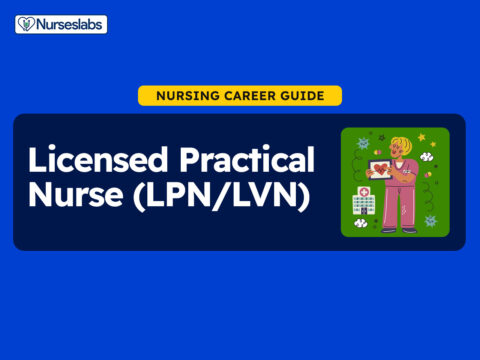
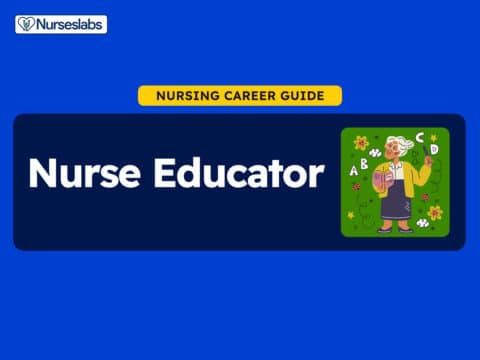
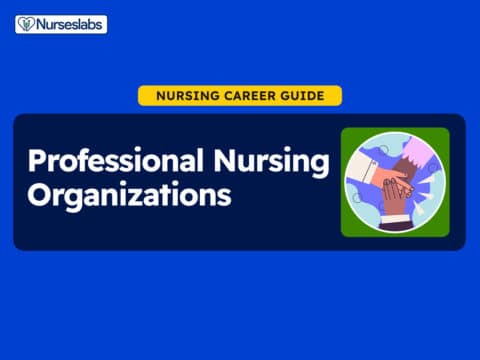
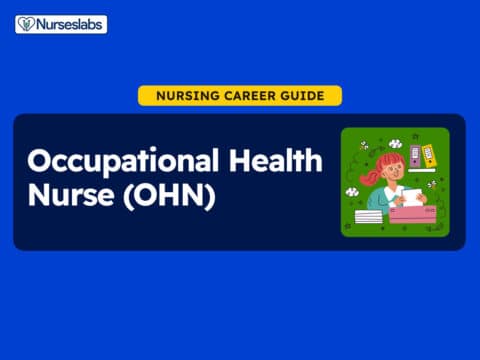
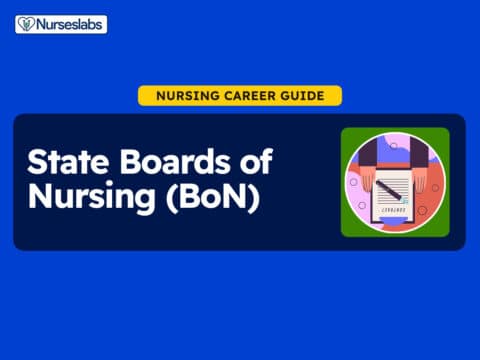
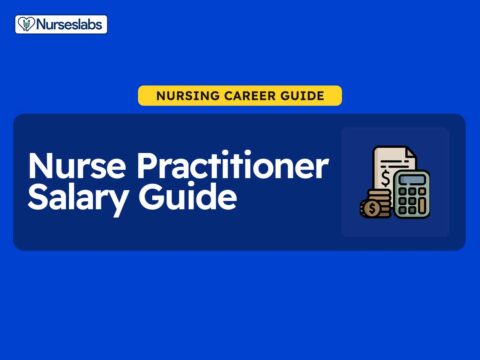
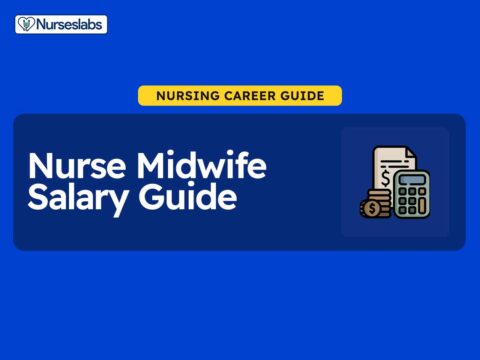


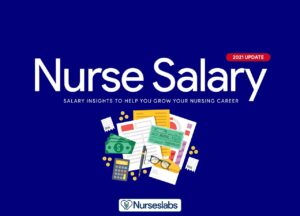
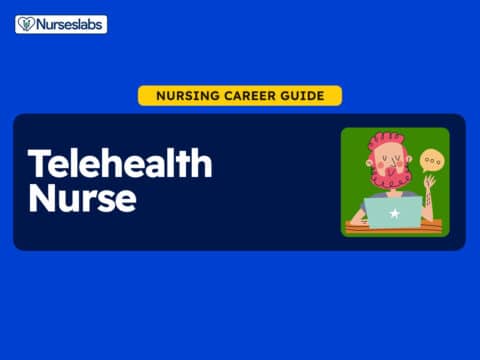
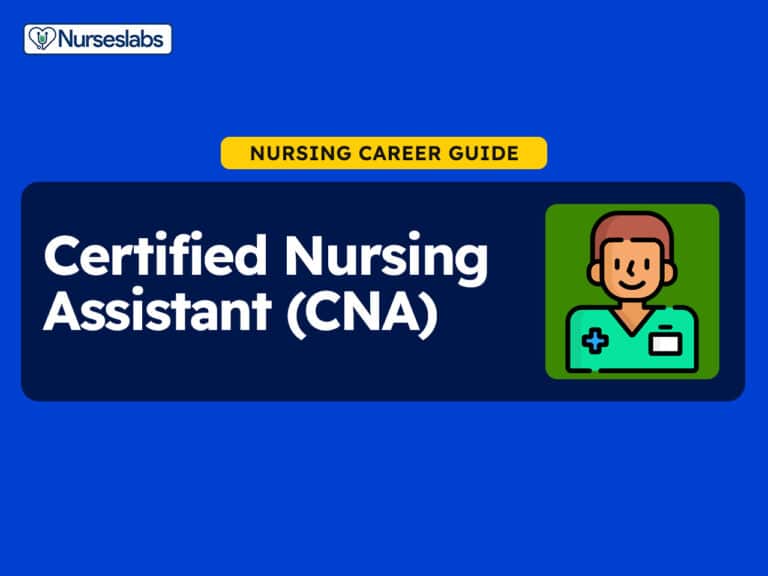
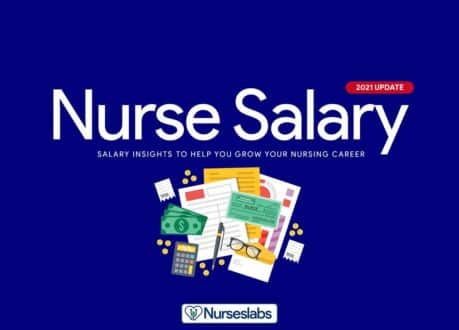
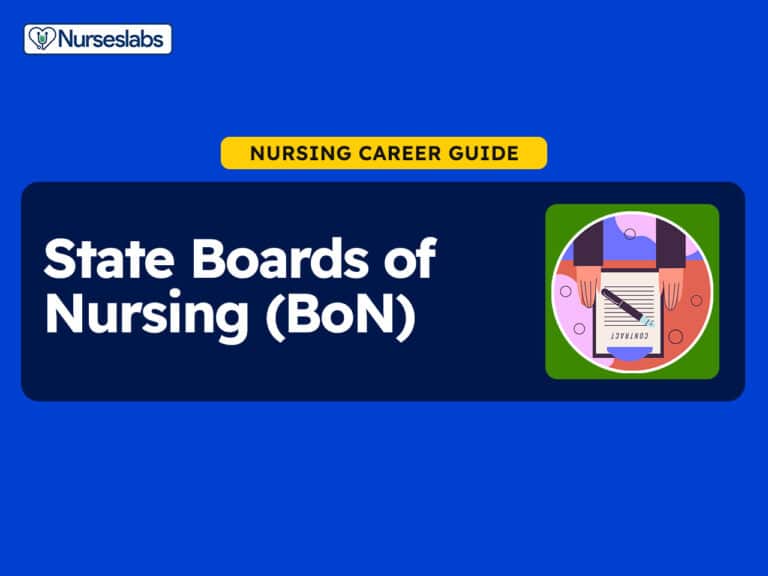

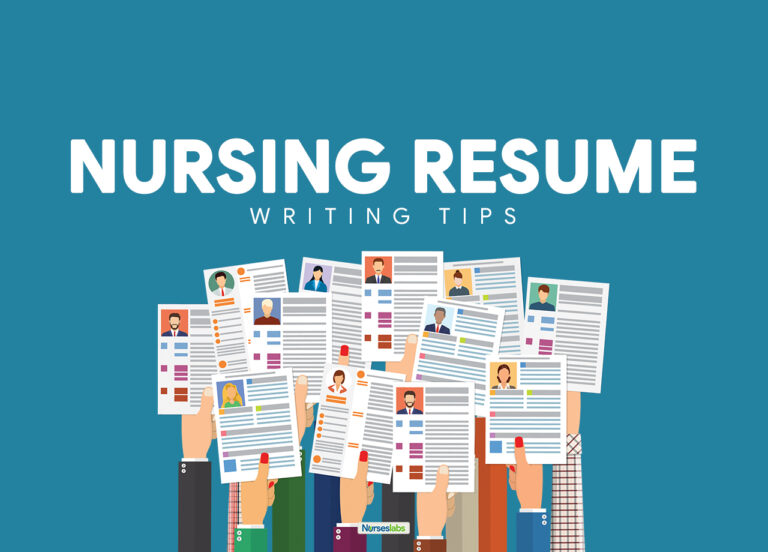
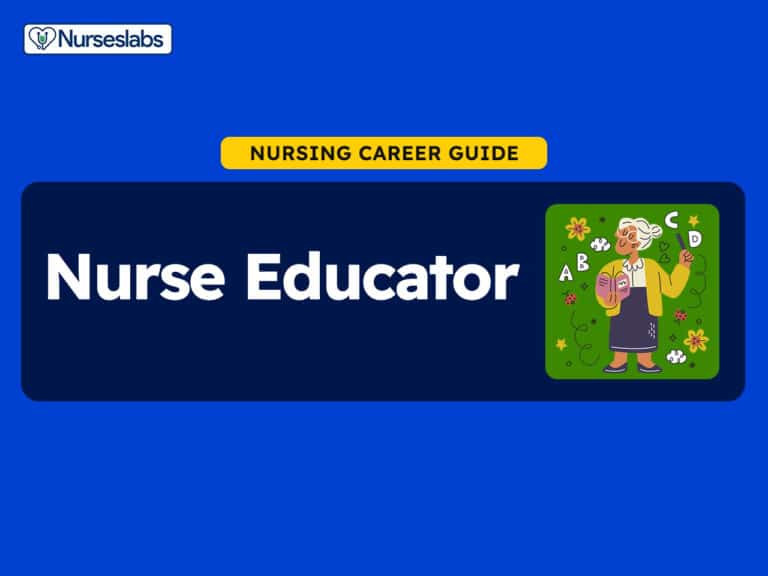
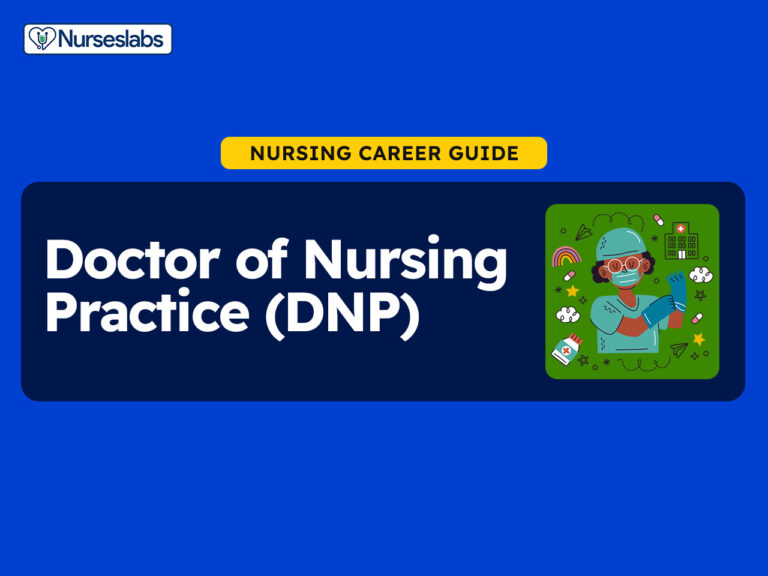

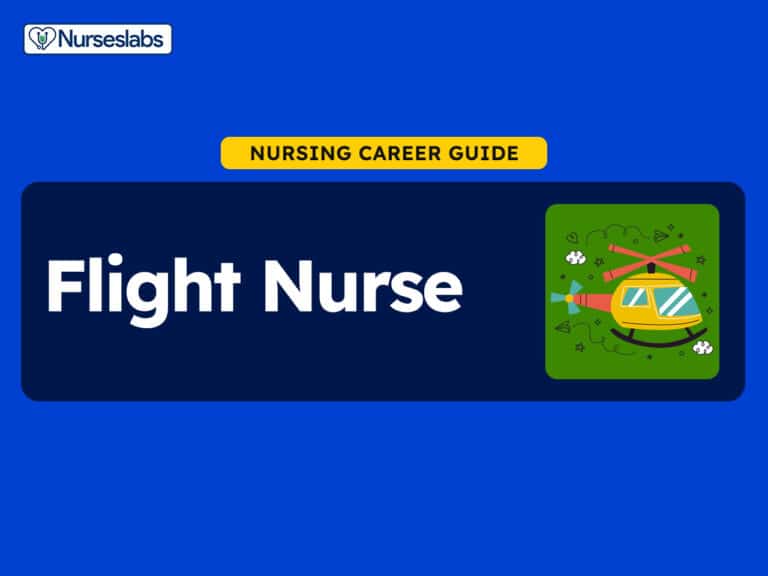
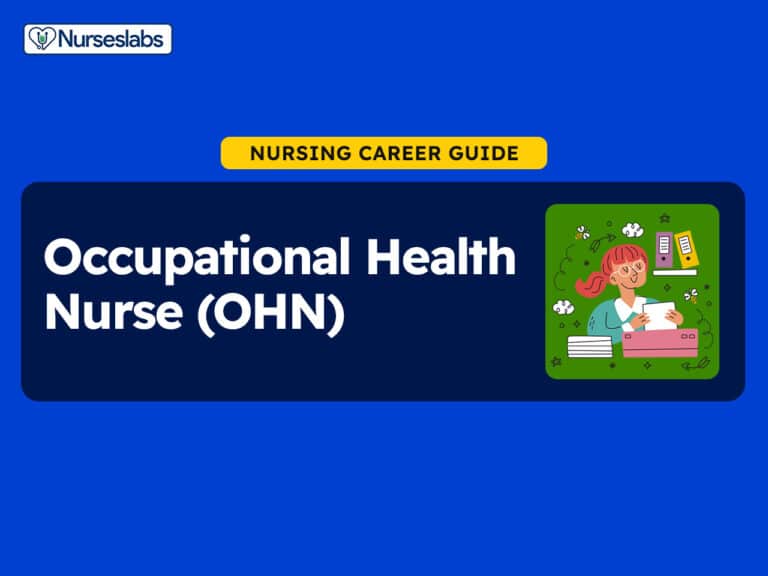
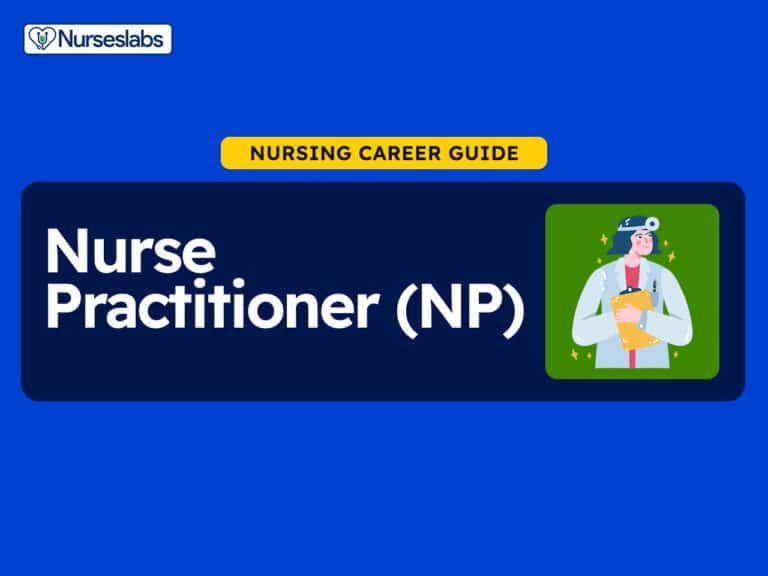
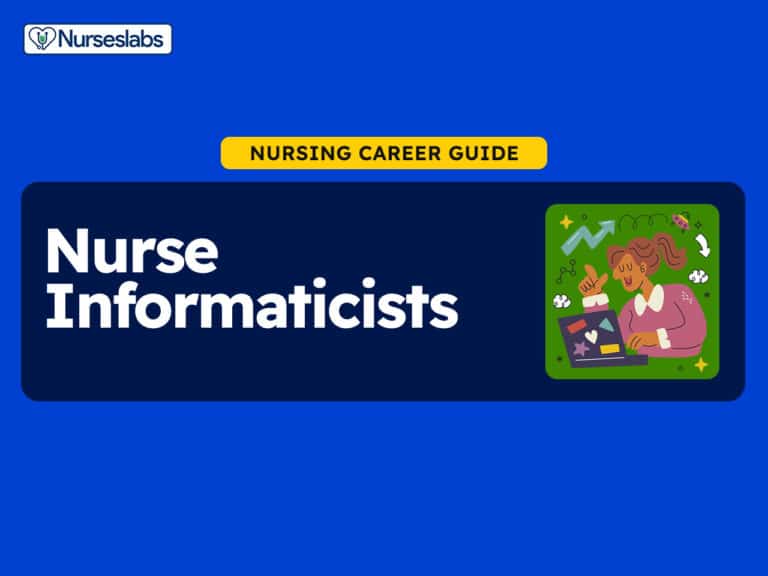
Leave a Comment